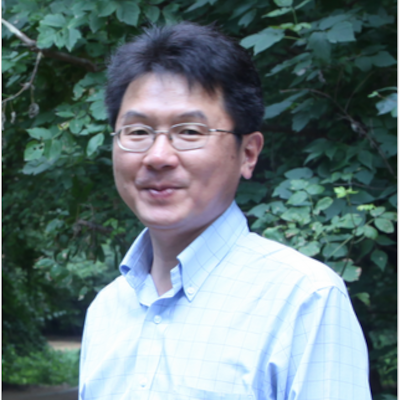David Gu
- Affiliation: Stony Brook University
- Web Site: https://www3.cs.stonybrook.edu/~gu/
- Email: gu [at] cs.stonybrook.edu
- Title: Structured Mesh Generation
- Date & room: Wednesday, 5th July at 14:00 - 15:00 (Rooms: 1A+1B)
Abstract
Structured surface quadrilateral mesh generation and volume hexahedral mesh generation are crucial for geometric modeling and processing. But the structured meshing problem is intrinsically challenging. This talk focuses on the recent development to tackle these challenges based on modern topological and geometric theories.
It is well known that a closed torus does not admit a quad-mesh with only two singularities, whose valences are 3 and 5 respectively. But the theoretic proof is highly non-trivial. Although it seems to be a combinatorial problem, it has deep roots in the characteristic class theory of holomorphic line bundles, especially the Abel-Jacobi theorem. This discovery leads to the governing equations of the configurations of quad-mesh singularities. By solving these equations using Hodge theory and surface Ricci flow, the high quality, automatic quad-mesh generation algorithms can be developed.
The singularity configuration of volumetric hex-meshes becomes more complicated, due to the fact that the fundamental group of the manifold of crosses is non-Abelian, hence the classical topological obstruction theory for fiber bundles can not be applied. Instead, the recent breakthrough of the proof of Thurston's virtual Haken conjecture offers novel insights to the problem, by using the cube-complex theory it is promising to conquer the problem with theoretic guarantees.
Biography
Dr. David Xianfeng Gu is a New York Empire Innovation Professor at the Department of Computer Science, Stony Brook University. David received his Ph.D degree from the Department of Computer Science, Harvard University in 2003, supervised by the Fields medalist Prof. Shing-Tung Yau, and B.S. degree from Tsinghua University, Beijing, China in 1994. David's research focuses on applying modern topology and geometry theories in engineering and medical fields. With his collaborators, David systematically develops discrete theories and computational algorithms in the interdisciplinary field: Computational Conformal Geometry, and applies them for real problems, such as global surface parameterization based on Hodge decomposition theorem in graphics, deformable shape registration based on Teichmuller map in vision, structured mesh generation based on Abel-Jacobi theorem in solid modeling, curvature convergence analysis in geometric processing, explainable generative models based on geometric optimal transportation in deep learning, brain mapping and virtual colonoscopy in medical imaging and so on. Recently, David and his collaborators have proved the discrete surface uniformization theorem using surface Ricci flow, the Alexandrov theorem and Minkowski theorem using geometric optimal transportation, the singularity configuration of structured quad-mesh using Abel-Jacobi theorem. David has broad collaborations with companies in CAD industry, including Simens, Cadence and Ansys. David is a recipient of Morningside Gold Medal of Applied Mathematics in 2013; National Science Foundation Faculty Early Career Award, 2005.
